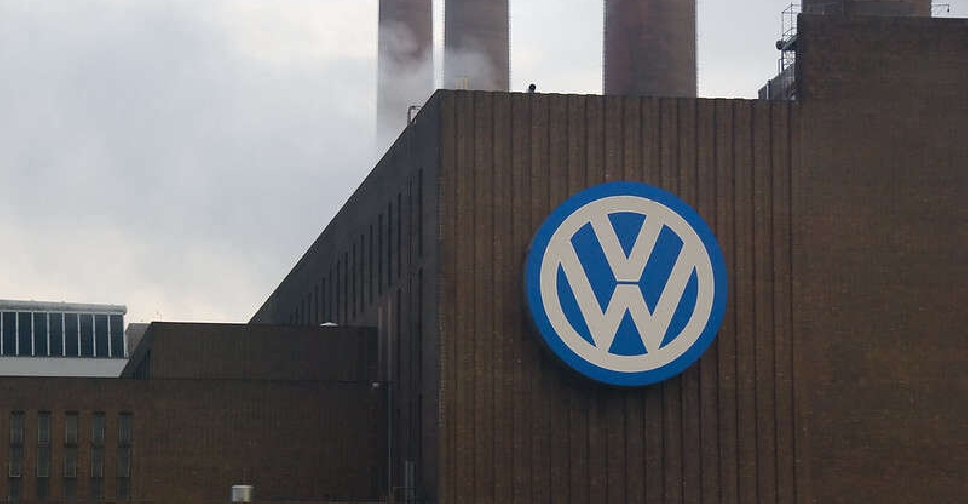
Volkswagen's union said it was gearing up for strikes across German factories from December 1 after talks over wages and unprecedented factory closures at Europe's largest carmaker failed to achieve a breakthrough on Thursday.
The IG Metall union had asked VW to take a "big step" in a third round of negotiations but said the negotiations ended with their positions still far apart.
Other than posing questions on the plan put forward by unions to save 1.5 billion euros ($1.6 billion) through measures including reduced working hours and forgoing bonuses, management did not put forward new proposals of their own, unions said. Talks however will continue on December 9.
Thousands of employees had gathered as talks were held over wages for 120,000 of Volkswagen's roughly 300,000 staff in Germany, employed at six plants governed by a separate collective wage agreement to the rest of the workforce.
Volkswagen has demanded a 10 per cent wage cut, arguing it needs to slash costs and boost profit to defend market share in the face of cheap competition from China and a drop in European car demand. It is also threatening to close plants in Germany for the first time in its 87-year history.
The troubles at Europe's largest automaker have fed wider anxieties about Germany's status as an industrial powerhouse in the run-up to a snap election in February in which Chancellor Olaf Scholz's economic record is under scrutiny.
"We were told that the company would still like to make an assessment of the package we laid out, which is legitimate, but also makes clear that site closures and mass layoffs are ultimately not off the table," said IG Metall union negotiator Thorsten Groeger.
"The difference between our positions is still huge."
Unions on Wednesday proposed forgoing bonuses for two years and creating a fund to finance a temporary reduction in working hours in less productive areas of the business.
IG Metall also signalled that it wants shareholders to take a reduced dividend, without scrapping it altogether, but did not specify an amount.
Volkswagen said it welcomed workers' willingness to consider a reduction in labour costs and capacities but added that any wage deal must offer "sustainable financial relief".
Arne Meiswinkel, the VW brand's personnel chief who leads negotiations for the carmaker, said "the sustainable achievement of financial targets remains crucial in order to ensure competitiveness in an extremely challenging phase for the German automotive industry".
Walkouts in December would be the first large-scale strikes at the German business - VW AG - since 2018 when over 50,000 workers took to the streets over pay.
Strikes would initially be so-called "warning strikes" lasting several hours. Union members could then vote to escalate to 24 hour strikes or longer.
Groeger however hinted at a willingness to accept sites being sold to buyers outside the VW Group as a way to prevent job losses and factory closures, saying: "For us, this is about achieving a long-term prospect for all sites, securing jobs and preventing redundancies."
Thousands of workers from various cities gathered in the soccer stadium in Wolfsburg, where Volkswagen is headquartered, earlier on Thursday, blowing whistles, waving flags and whooping and booing. Sausages and pretzels were served in near freezing temperatures outside.
Company and industry data reviewed by Reuters showed that the automaker spends a higher proportion of sales on labour costs than its major rivals.
But others are also struggling.
Ford said on Wednesday it would cut around 14 per cent of its European workforce. Mercedes-Benz plans to cut costs by several billion euros per year in the coming years, the Handelsblatt newspaper reported on Thursday.
Volkswagen's preferred shares, listed in Germany's blue-chip DAX index fell as much as 1.4 per cent to their lowest level since November 13.
The company's common stock, majority owned by Porsche SE- the holding firm controlled by the Porsche and Piech families - declined 1 per cent to its lowest level in over 13 years.
"The unions specifically mention that shareholders must also contribute, i.e., the dividend policy must be adjusted," a note from Stifel analysts said.
They added that this would be negative for Porsche, the main recipient of Volkswagen's dividends.
Claudia Jobe, a member of the VW works council at the Hanover plant, said management had changed its tune since she joined the company in 1991 to making unilateral decisions in the interests of shareholders, not workers.
"You're also afraid, you've been at the plant for so many years and it all counts for nothing," she said.



 Nasdaq set to confirm bear market as Trump tariffs trigger recession fears
Nasdaq set to confirm bear market as Trump tariffs trigger recession fears
 Dana Gas and Crescent Petroleum exceed 500M boe in Khor Mor field
Dana Gas and Crescent Petroleum exceed 500M boe in Khor Mor field
 China to impose tariffs of 34% on all US goods
China to impose tariffs of 34% on all US goods
 Shares bruised, dollar crumbles as Trump tariffs stir recession fears
Shares bruised, dollar crumbles as Trump tariffs stir recession fears




